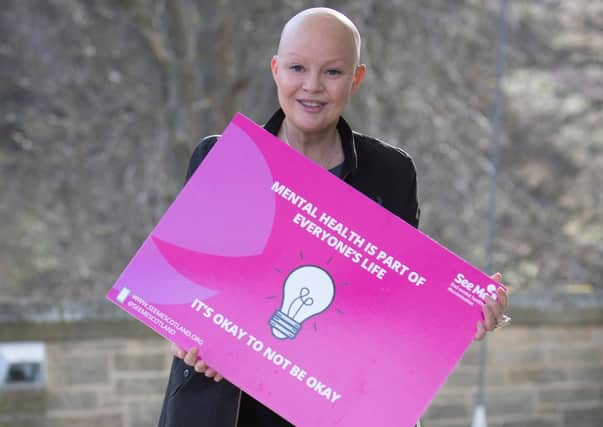Gail Porter: Mental health stigma could have destroyed my career


Porter, 48, said she experienced serious health issues while working as a kids’ presenter, but had hidden what she was going through. She suffered from anorexia and depression and had a breakdown after the death of her mother in 2009.
Porter, whose work suffered after her hair fell out due to alopecia, was also sectioned under the Mental Health Act for 21 days, but she recently released a documentary about her mental health journey in which she said she is “in a happy place now”.
Advertisement
Hide AdAdvertisement
Hide AdThe former model, who grew up in Joppa, returned to her home city on Wednesday to join See Me, the national programme in Scotland to end mental health discrimination, in a call for people to be confident in recognising stigma and discrimination and to know how to take action when they see it.
She said: “While I was enjoying a successful career on television, I was experiencing serious mental health illness, but at the time there was still a real stigma around the subject, so I had to smile and carry on as normal. Hiding it just made things worse.
“In those days, the media often labelled people ‘mad’ or similar derogatory terms. There was a stigma and discrimination around mental health that could quickly destroy your career.
“These days, it’s great that mental health is something that is talked about more openly and positively and the stigma has been reduced significantly, but there’s a long way to go.”
Advertisement
Hide AdAdvertisement
Hide AdSee Me has released new research showing that more than half of Scots (56 per cent) who have struggled with mental health have been stigmatised or discriminated against because of it.
The poll of more than 2000 people, carried out by Censuswide for See Me, is part of the most extensive research into mental health stigma in Scotland for over five years.
It found that Scots are most likely to experience stigma and discrimination from those closest to them, including from friends, family and work colleagues.
However, there are also positive signs, with 79 per cent of respondents saying they think public perceptions of mental health problems has improved over the past decade.
Advertisement
Hide AdAdvertisement
Hide AdBut with one in three people in Scotland experiencing mental health problems, and more than half of those facing stigma and discrimination, See Me conclude that nearly a million people north of the Border could be being treated unfairly.
The research also highlights the difficulty people experience in getting help, with GP practices being the most common place that people say they face stigma and discrimination.